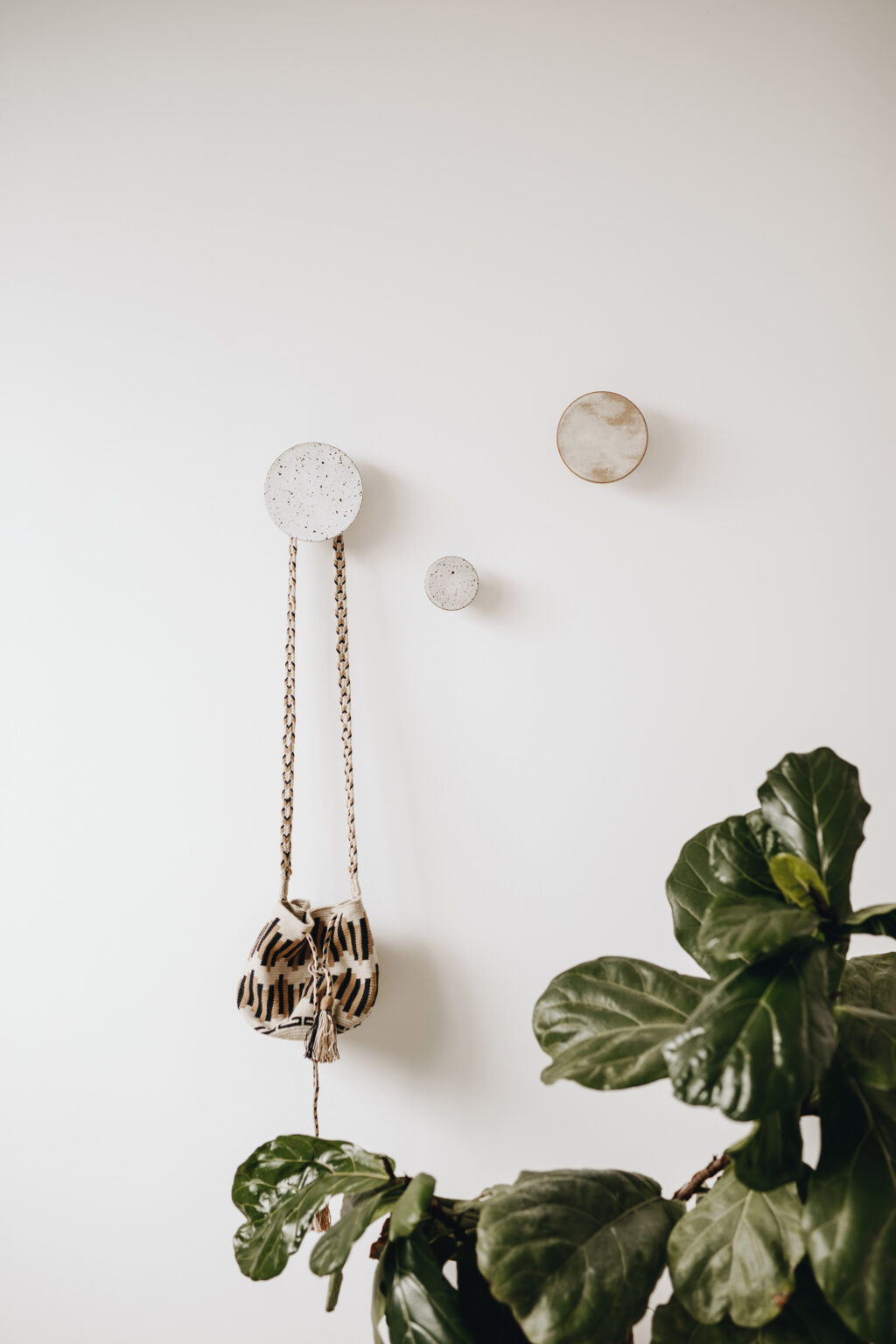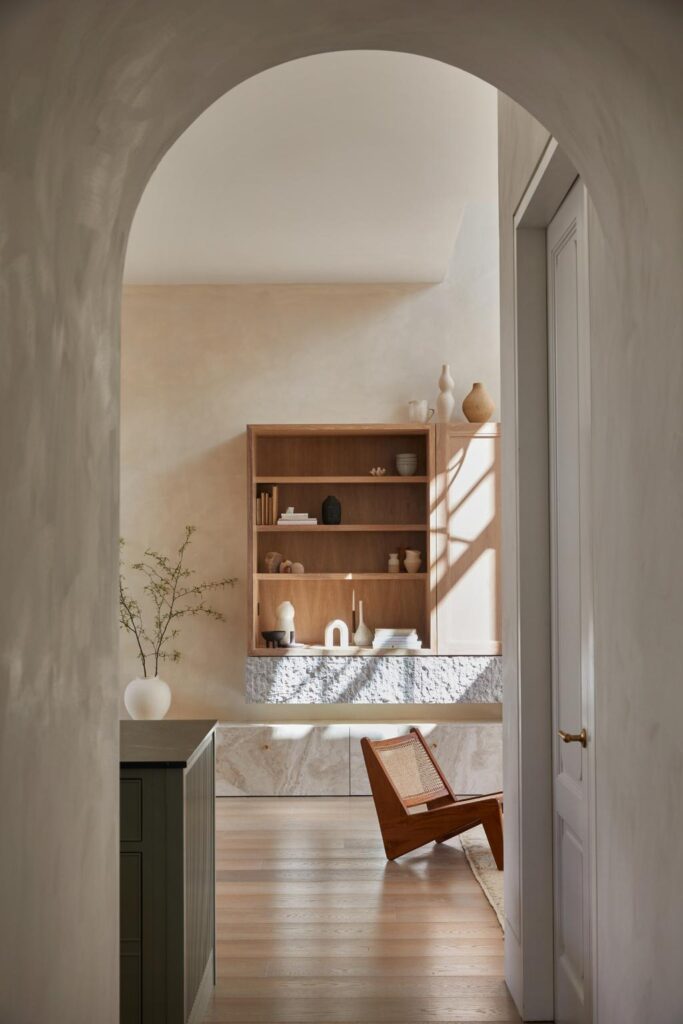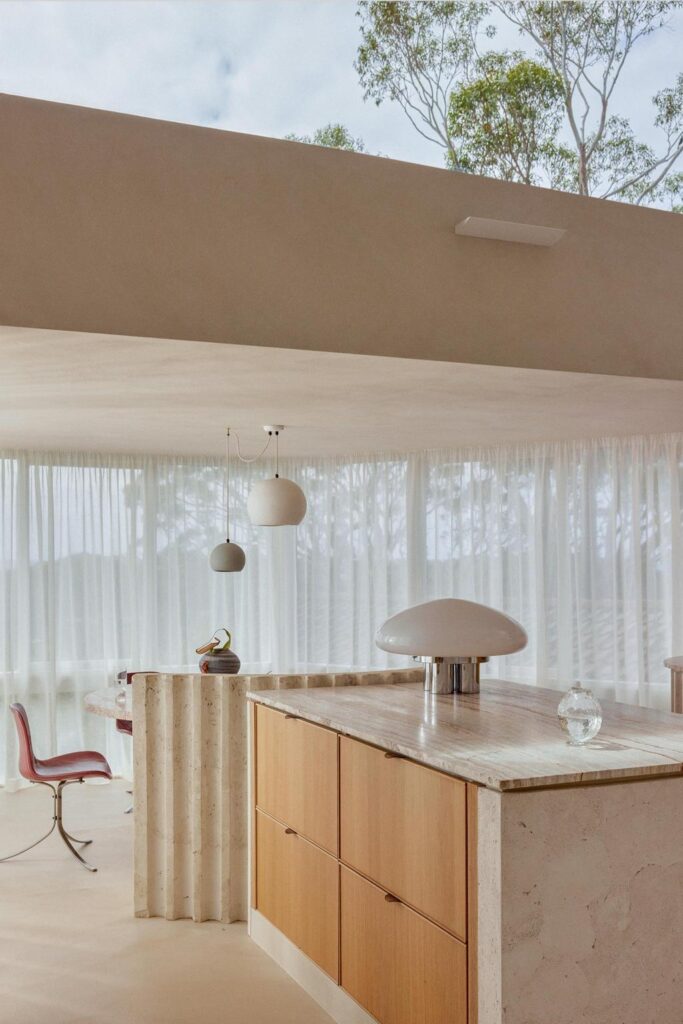As we step into the second half of 2024, home design continues to evolve, blending aesthetic appeal with functionality and sustainability. The latest trends reflect a growing desire for spaces that are not only visually striking but also promote well-being and environmental consciousness. Warm neutrals, layered colour schemes, and statement-making island countertops are among the top trends in home design for 2024.
Homeowners and designers alike are embracing a more purposeful approach to colour, moving away from monochromatic schemes towards mix-and-match shades and tones. This shift allows for greater personalisation and depth in interior spaces. Simultaneously, there’s a growing emphasis on creating serene environments, with pearl-inspired interiors offering a calm retreat from the outside world.
Key Takeaways
- Sustainable materials and smart home technologies are becoming integral to modern home design.
- Colour schemes are shifting towards layered, purposeful combinations for personalised interiors.
- Comfort and practicality remain key considerations, with a focus on creating serene living spaces.
- Curved designs and natural elements like stone and timber are gaining popularity.
- Feature rangehoods are increasing in popularity, becoming focal points in kitchen design.
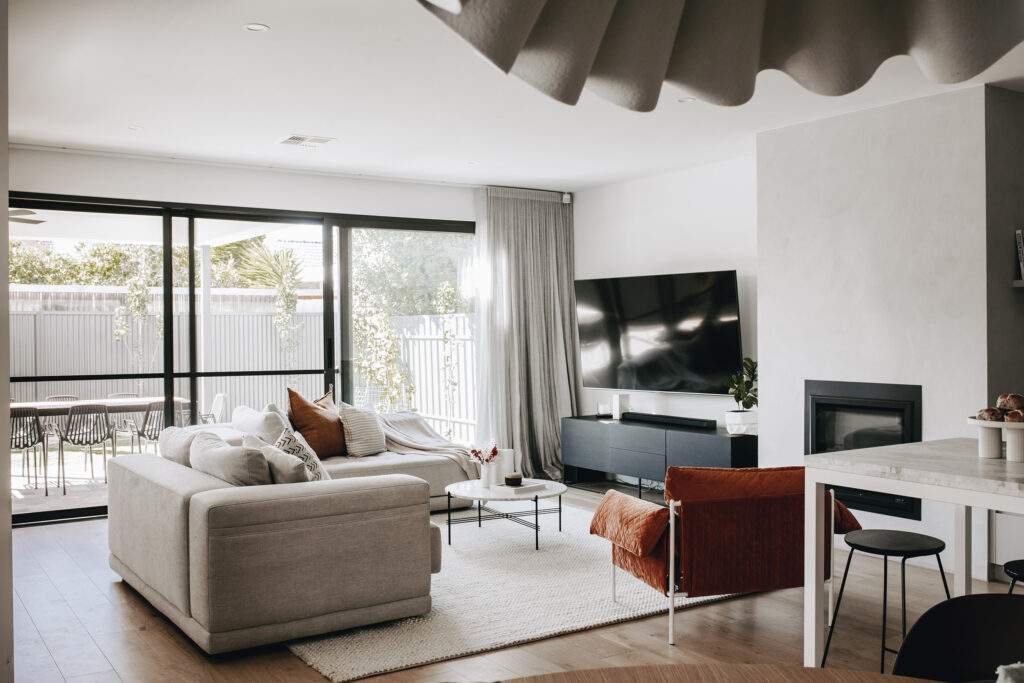
Sustainable and Natural Living Spaces
The future of home design in 2024 emphasises creating spaces that harmonise with nature and prioritise sustainability. This approach focuses on using eco-friendly materials and blurring the lines between indoor and outdoor living.
Embracing Natural Materials and Sustainability
Sustainably sourced engineered timber flooring is gaining popularity in 2024. These options reduce environmental impact while offering a beautiful, durable alternative to traditional flooring materials. Homeowners are also turning to renewable materials such as bamboo and cork for flooring and furniture.
Biophilic design is a key trend, with 64% of homeowners planning to incorporate natural elements in their renovations. This approach integrates nature into living spaces, creating a connection between indoors and the natural world. Designers are increasingly using:
- Reclaimed wood for feature walls and furniture.
- Natural stone for benchtops and flooring.
- Wool insulation for improved energy efficiency.
Integrating Indoor-Outdoor Living
The line between indoor and outdoor spaces continues to blur in 2024. Large windows and glass doors are essential elements, allowing abundant natural light to flood interiors. This design choice not only creates a sense of openness but also reduces the need for artificial lighting during the day.
Passive design principles are becoming standard practice. These include:
- Strategic window placement for optimal ventilation.
- Proper home orientation to maximise natural light.
- Use of thermal mass materials to regulate indoor temperatures.
Outdoor living areas are evolving into fully functional extensions of the home. Covered patios with outdoor kitchens, fireplaces, and comfortable seating areas allow homeowners to enjoy nature year-round.
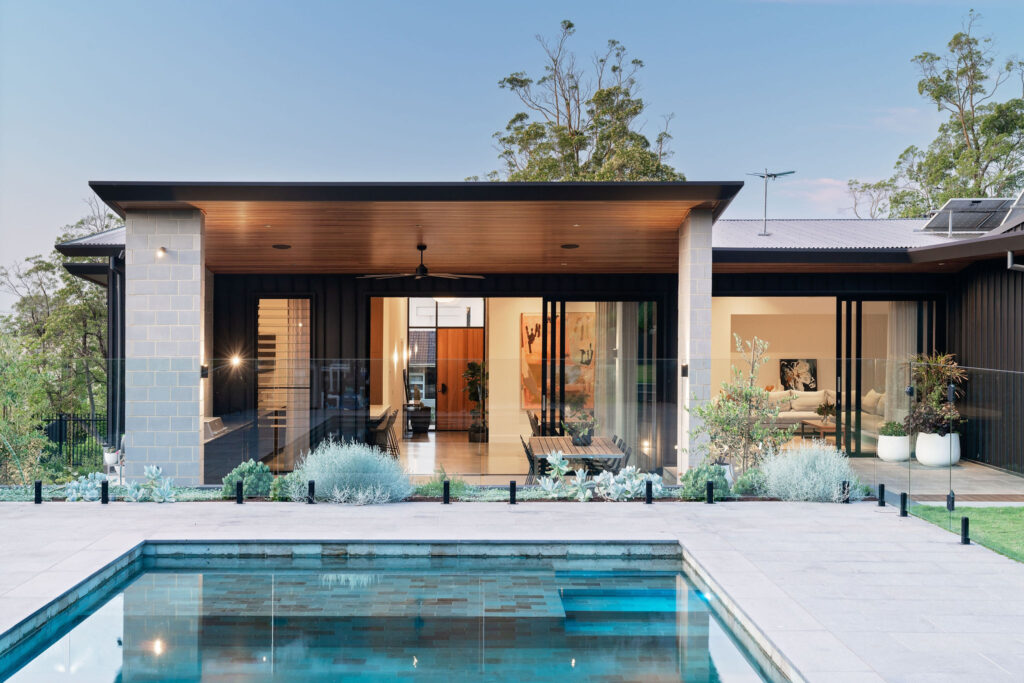
Innovations in Smart Home Technology
Smart home technology continues to advance rapidly, offering homeowners unprecedented levels of convenience, security, and control. These innovations are transforming everyday living spaces into intelligent environments that anticipate and respond to occupants’ needs.
Smart Locks and Security
Smart locks have revolutionised home security, allowing homeowners to control access remotely. These devices can be operated via smartphone apps, voice commands, or biometric data like fingerprints. Many smart locks integrate with video doorbells and security cameras, providing a comprehensive security solution. Users can monitor visitors, grant temporary access to guests, and receive real-time alerts about unusual activity. Advanced models now offer features like auto-locking when you leave home and integration with smart home hubs for seamless operation with other devices.
The Convenience of Smart Home Tech
Smart home technology has made daily tasks significantly easier. Voice-activated assistants like Google Home and Amazon Alexa can control various aspects of the home environment, from adjusting lighting to managing appliances. Artificial intelligence and machine learning are enhancing these systems, enabling them to learn occupants’ preferences and routines. This allows for more personalised and efficient home automation. Smart thermostats adjust temperatures based on occupancy and weather forecasts, optimising energy usage. Connected appliances can be controlled remotely, allowing users to start the washing machine or preheat the oven from their smartphone. An example of home integration technology is Clipsal Wiser, which offers seamless control over lighting, climate, and security systems.
Designing for Comfort and Practicality
Home design in 2024 prioritises functionality and cosiness. Spaces are being crafted to enhance daily living through clever use of space and smart storage solutions.
Multi-functional Rooms and Furniture
The home office has become a permanent fixture in many households. Designers are creating adaptable spaces that seamlessly transition from work to leisure. Fold-away desks and hidden storage compartments allow rooms to serve multiple purposes without compromising style. Kitchen design has evolved to include appliance garages and butler’s pantries. These features keep countertops clutter-free while maintaining easy access to frequently used items. Wine rooms are gaining popularity, doubling as both storage and visual displays. Comfortable seating options with plush fabrics and ergonomic designs cater to the ‘quiet luxury’ trend. Modular furniture pieces adapt to various configurations, allowing homeowners to customise their space as needed.
Smart Storage Solutions
Built-in cabinetry is experiencing a resurgence, offering tailored storage solutions that maximise space efficiency. Designers are incorporating floor-to-ceiling units in living areas and bedrooms to minimise visual clutter and create a sense of openness. Mud-laundry rooms are becoming more prevalent, serving as transitional spaces between the outdoors and living areas. These rooms feature:
- Built-in lockers for each family member.
- Shoe storage solutions.
- Dedicated areas for pet supplies.
- Integrated laundry facilities.
In kitchens, pull-out pantries and corner cabinets with innovative mechanisms ensure every millimeter of space is utilised effectively. Most kitchens are favouring drawers to cupboards for ease of access and better organisation.
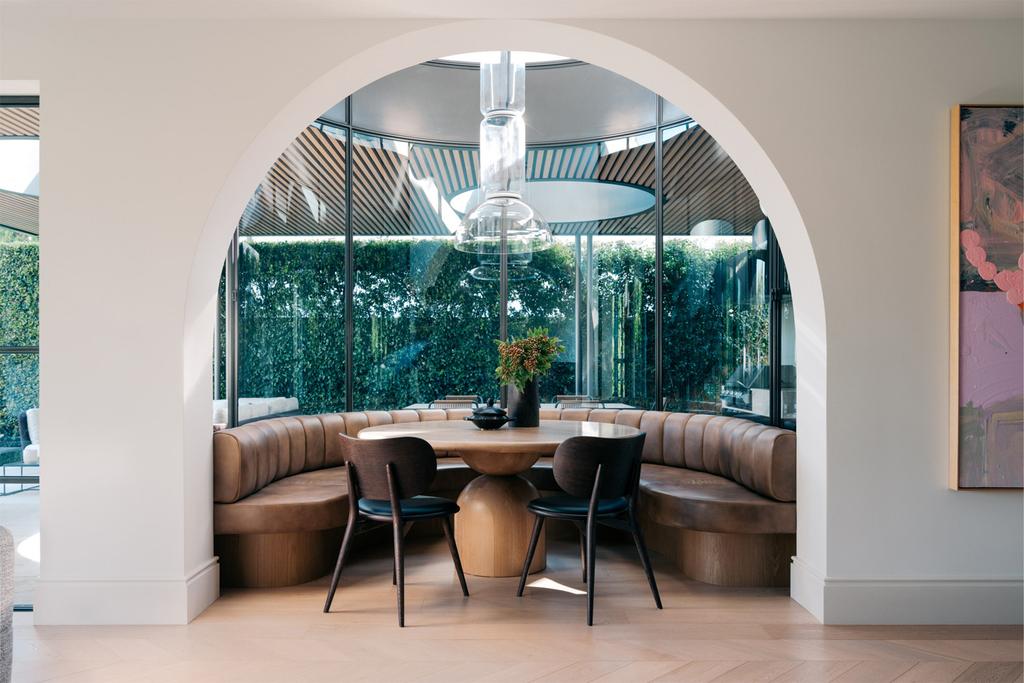
Curved Designs and Natural Elements
Curved designs are becoming increasingly popular in 2024, adding softness and flow to interiors. These organic shapes appear in furniture, architectural details, and decorative accents, creating a more inviting and comfortable environment. Natural elements such as stone and timber are also in high demand. Stone benchtops provide durability and a timeless aesthetic, while timber features add warmth and a connection to nature. Feature rangehoods are also becoming focal points in kitchen design, combining functionality with striking visual appeal. By incorporating these materials, homes can achieve a balance of modern luxury and natural beauty.
As we move forward into 2024, these trends highlight the importance of creating homes that are not only stylish but also sustainable and functional. Regent Homes is proud to be at the forefront of this evolution, blending innovative design with the highest standards of quality and craftsmanship. Whether you’re looking to embrace smart home technology or incorporate natural elements into your living space, our team is here to help you realise your vision.
